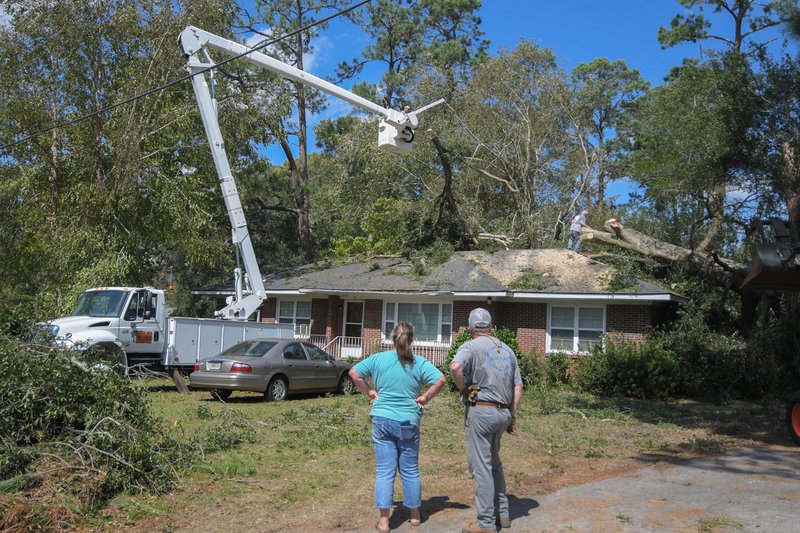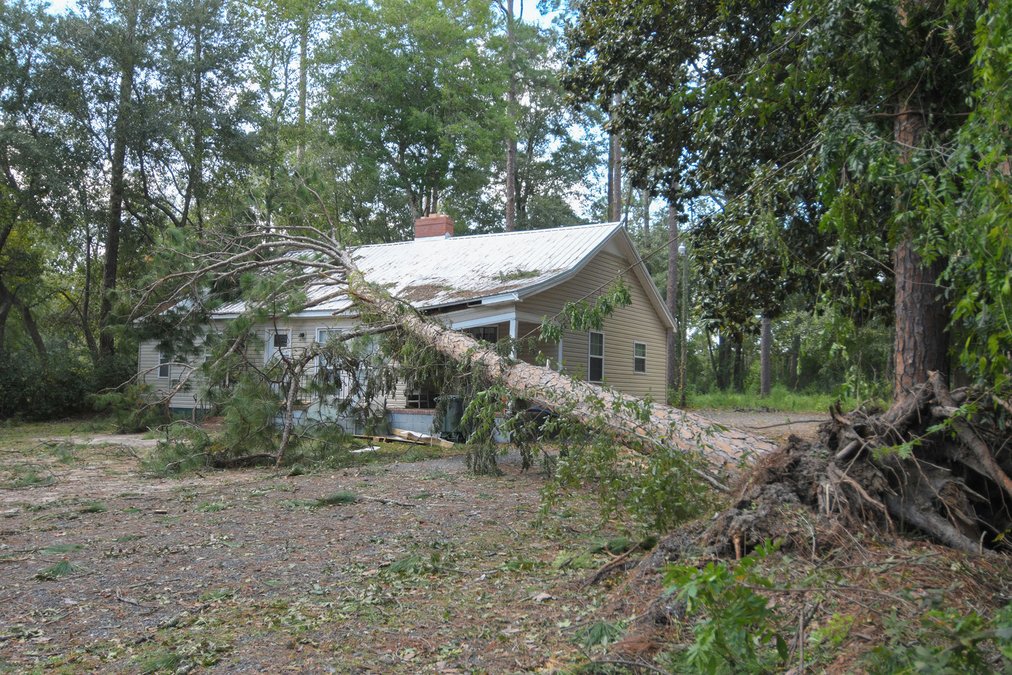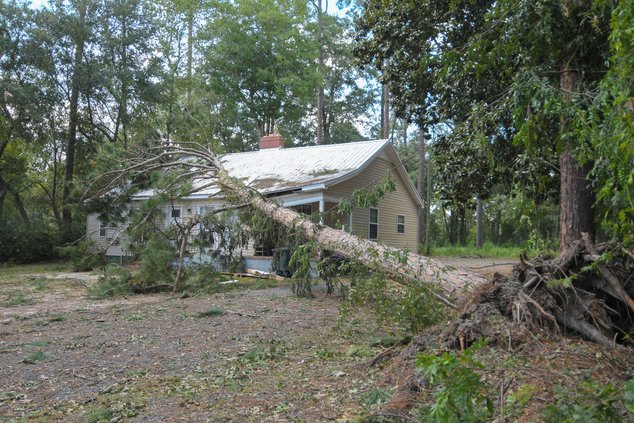Biff Cail and his Cail Tree Service have been very busy since Hurricane Helene blew through southeast Georgia last week.
Based in Sylvania, Cail said he and his crews have helped a number of their regular clients dig out from fallen trees, limbs and brush, but he was angry Friday morning.
“I’ve talked to a number of people who just plain got scammed,” he said. “They had trees down in their yard, or on their roof or on a shed and they paid the first person who came up to them and told them they’d take care of it. Paying double, triple or more what they should. And they don’t do a good job.
“People need to know to look out for scammers at this time. They’re out there and it’s not right.”
In fact, the FBI held a news conference in Atlanta Friday to specifically address the growing prevalence of “disaster fraud” and offered some advice to avoid becoming a victim.
“The FBI and the National Center for Disaster Fraud remind the public that there is an increased risk for disaster fraud following Hurricane Helene,” a release from the FBI stated. “There have been reports of scammers claiming to work for contractors and insurance companies targeting Hurricane Helene recovery efforts.”
Locally, Statesboro Police Chief Mike Broadhead said his office has not received any residents reporting possible storm-related scams, but he knows “scammers are out there.”
“It's really sad that the scammers prey on people's vulnerabilities and their emotions at a time where people are feeling vulnerable and they're emotional about what they are going through,” he said. “My best tip is to be very suspicious of people who approach you directly, at your home, to offer a service. If they want any cash up front, that's a red flag for a scam. The more pressure they put on you to do business with them, the more likely it is a scam.”
Along with Cail Tree Service, there are numerous reputable local contractors locally and in the area who are available for hire to assist with tree work and debris cleanup.
Last Saturday, a crew from Dixieland Tree and Landscape, which based on Winding Way, near Mill Creek Park, and owner Brian Smith were removing a massive tree from the roof of a home on Azalea Drive in Statesboro.

At its Friday press conference, the FBI offered the following best practices to avoid being victimized:
• Scammers may go door to door to target residents in areas affected by hurricanes. They may also call, text, or email with promises to quickly provide aid. Do not give out personal information without confirming the legitimacy of the person contacting you.
• Government workers are required to carry official identification and show it if requested. Closely scrutinize any ID you see and call the agency directly to confirm a worker’s identity if you are unsure.
• Do your homework when it comes to donations. Research charity reviews online, state regulators of charities, and charity reports and ratings via the Better Business Bureau.
• Never make charitable donations by gift card or wire transfer. Credit cards are safer.
• Don't believe your caller ID. Scammers often spoof agency phone numbers. It is always best to research the organization telephone number and call direct to verify. Do not be pressured or rushed to donate. If so, it may be a scam.
• Do not click on links from sources you don’t know. These could be attempts to download viruses onto your computer or cell phone. Manually type out links instead of clicking on them.
“What happens with a scam is they're trying to come in and get out quickly with your money or valuable personal information,” Broadhead said. “If someone is not willing to provide proof of insurance and bonding or an official written estimate, I'd walk away.”
Another common occurrence after a major storm is price-gouging. Prior to Helene making landfall Sept. 26, Gov. Brian Kemp issued an executive order invoking the Price Gouging Statute that makes it illegal to gouge for goods and services necessary for preparation, response, and recovery activities, including motor fuel, diesel fuel and other petroleum products.
While Broadhead hopes his department doesn’t receive any complaints of scams, he recognizes it may be happening anyway.
“We know people are sometimes embarrassed that they got scammed and won't report it,” he said. “I would tell them just understand that con men are good at what they do. They tend to be pretty smooth. They tend to be pretty manipulative. And so people shouldn't be embarrassed by that. They become victimized by somebody who's just really good at the game and took advantage of them at a vulnerable moment.
“If you are suspicious, call us and let an officer come talk to you, get the information and then we can try to recover that loss potentially or at least point you in the right direction to get assistance.”
In addition to contacting the Statesboro PD at (912) 764-9911 or the Bulloch County Sheriff’s Office at (912) 764-8888, the National Center for Disaster Fraud hotline – (866) 720-5721 – is staffed by a live operator 24 hours a day, seven days a week.

